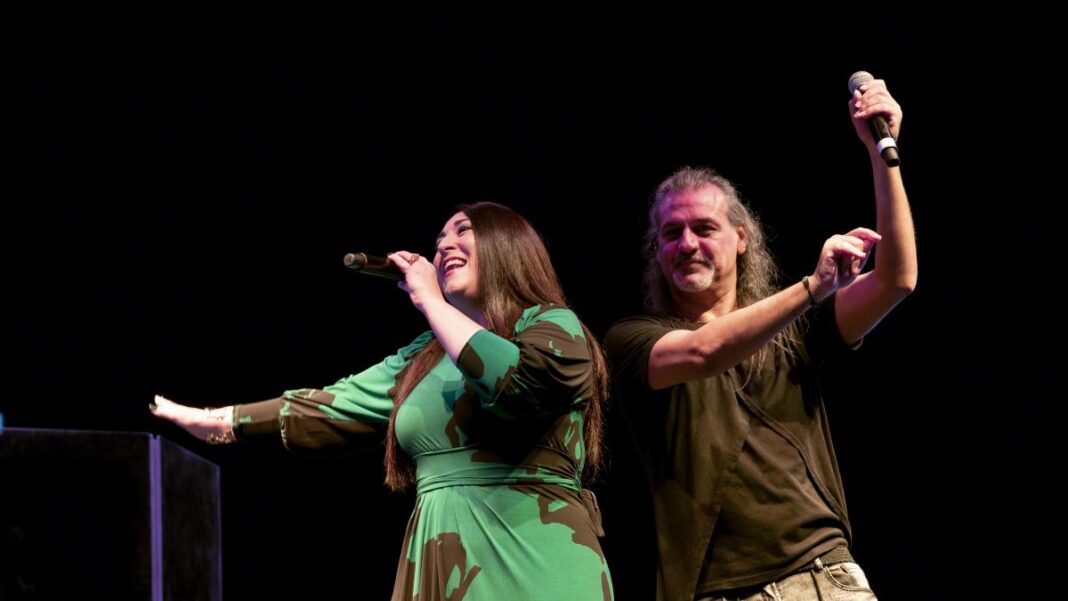BTN News: The iconic Spanish duo, Camela, comprising Ángeles Muñoz and Dioni Martín, has once again captured the spotlight, not just with their enduring music, but with candid insights shared in a recent interview with Egos, a supplement of La Razón. As seasoned veterans of the music scene, with a career spanning decades, their perspective on Spain’s current state and their hopes for future collaborations reveal much about their connection to their homeland and the ever-evolving music industry.
When asked if they believe Spain is on the right track, Dioni Martín’s response was notably optimistic. “It must be doing well because not only are we doing ninety concerts, but many of our fellow artists are also working a lot,” he pointed out, underlining the vibrancy and activity within the Spanish music scene. This observation, grounded in the bustling schedules of artists across the country, suggests that the cultural sector, at least, is thriving—a positive indicator of broader societal health.
However, it was Ángeles Muñoz who provided a more nuanced reflection. With palpable affection for her country, she remarked, “There’s always good vibes; I love Spain a lot, and I’m proud of my country.” Yet, she didn’t shy away from acknowledging that there is room for improvement. In a moment of nostalgia, she added, “Could things be better? Maybe they could be like they were 20 years ago.” This subtle comment hints at a longing for a bygone era, perhaps when things felt simpler or more hopeful, reflecting a sentiment that resonates with many Spaniards today.
Beyond their reflections on Spain, Camela also shared their excitement about a potential collaboration with one of the current queens of the music industry, Rosalía. Ángeles revealed that the idea had been in the works for their 25th anniversary compilation. “She was thrilled about it, but it couldn’t happen,” she shared, leaving fans with a bittersweet taste of what could have been. Nevertheless, Dioni remains hopeful. “We still hold out hope of collaborating with Rosalía, who is currently reigning supreme,” he added, expressing a desire that likely echoes the sentiments of their fanbase.
Camela’s insights and aspirations offer a glimpse into the minds of artists who, while firmly rooted in the present, remain deeply connected to their past and to the evolving musical landscape of Spain. Their pride in their country, combined with a wistful glance backward and a hopeful look forward, paints a portrait of artists who, like many Spaniards, are navigating the complexities of a rapidly changing world with both affection and ambition.


